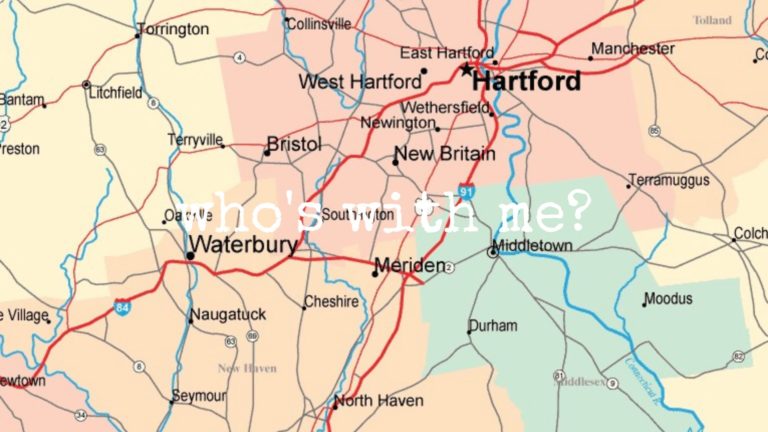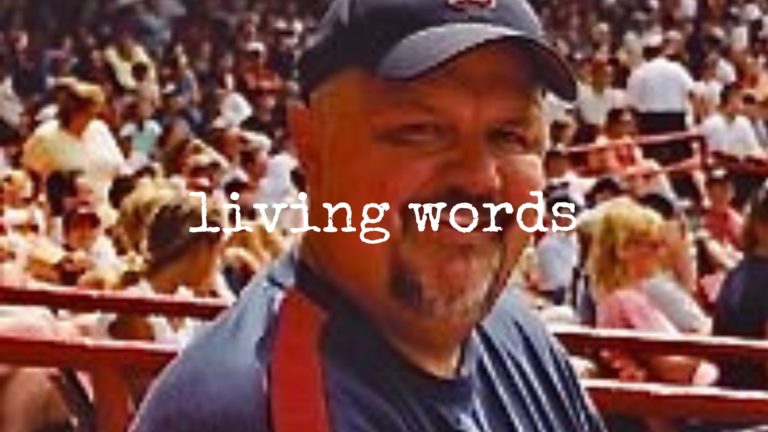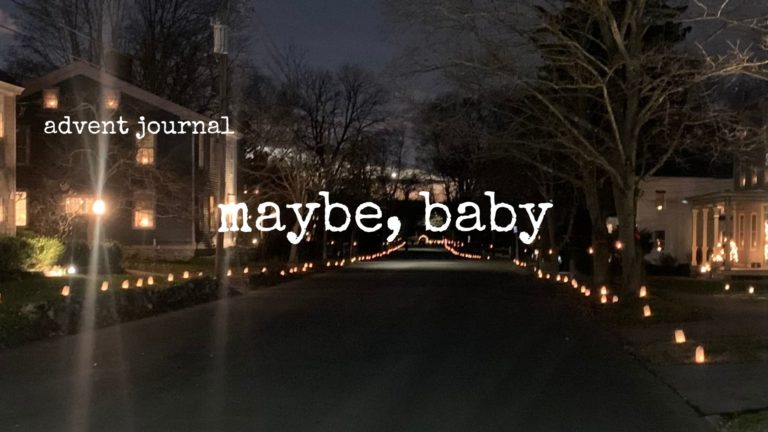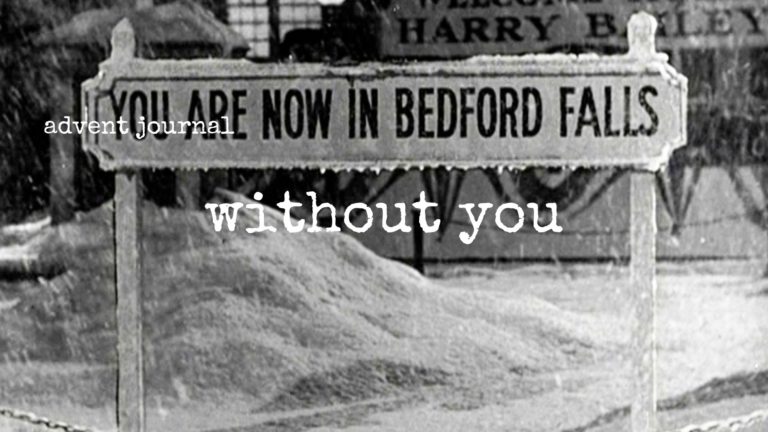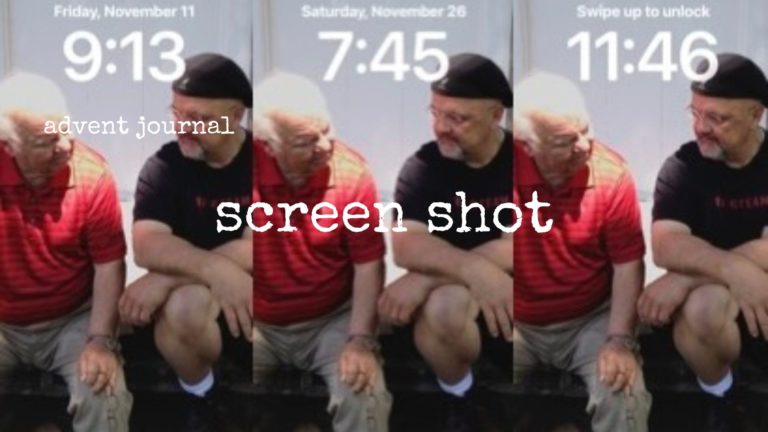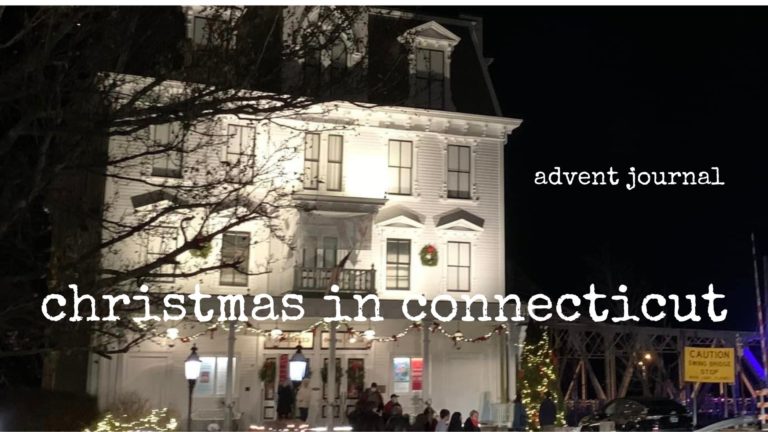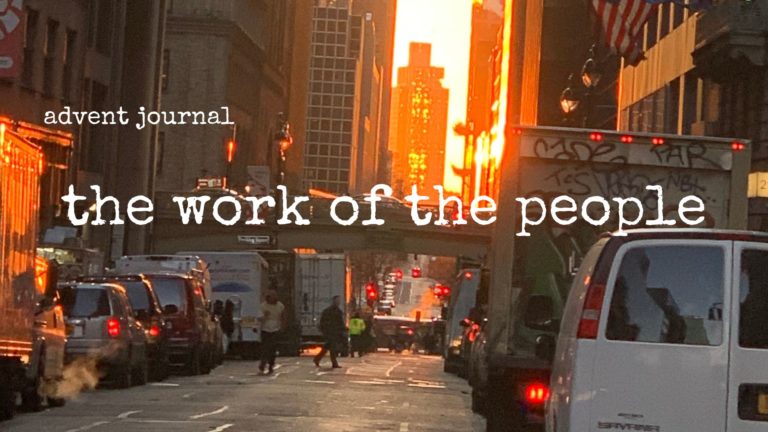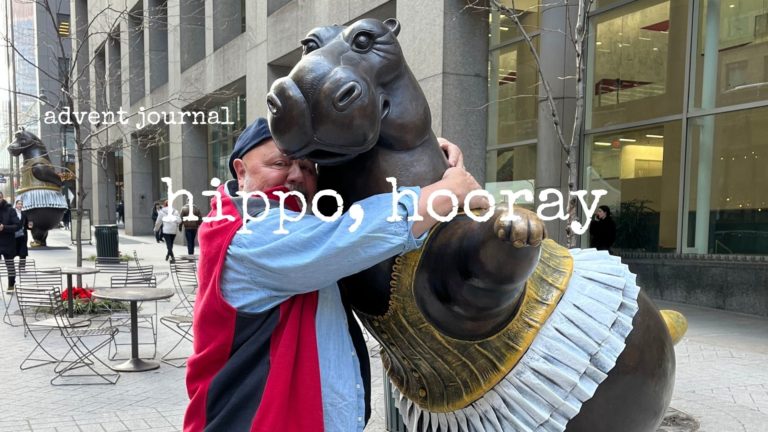One of the people I got to meet, or at least talk to, while I was working as an editor is Debie Thomas, who is minister of lifelong formation at St. Mark’s Episcopal Church in Palo Alto, California, and author of Into the Mess and Other Jesus Stories. About this time last year, I contacted her with a book idea about prayer because of something she had written in The Christian Century and we had a great conversation, but she had publishing allegiances elsewhere and the idea fell by the wayside as I finished my time at the publishing house.
This week she has another great article called “The Feeling I No Longer Pray For.” I love the subtitle as well: “One of the reasons I left my childhood faith tradition is that I didn’t feel what I was supposed to feel.” Her writing is compelling for several reasons, but I came back to it tonight after an afternoon of being a Lyft driver (can I say Lyfting?) because one section was illuminated by my afternoon. She wrote:
Most of us have an easy time perceiving God in our gratitude, our awe, our reverence, our delight. But what if God is just as present in our boredom, our irritation, our hunger, and our fury? What if God dwells as richly in the laundry room, the cafeteria, the schoolyard, and the boardroom as God does in the pews, the sermon, the chalice, and the baptismal font?
My first alert was to pick up D’Andre at Union Station in New Haven and drive him to an address in Wethersfield, about thirty miles north, not too far from Hartford. When I pulled up in front of the station, he got in with a weekend bag, a big coat, and a large paper bag full of what looked to be Christmas gifts. He was returning from his family home in Pennsylvania and had been on a train most of the day. It took about forty minutes to get to his house. I dropped him off in a town I had never visited and waited to see who would call next.
Someone named Jane needed me to pick them up in Glastonbury, the town across the Connecticut River. I took her from her job at a nursing home to her apartment in East Hartford. She had had a long day at work and was ready for a nap, she said. From there I met Juanita when I picked her up at the Walgreens nearby where she had picked up a prescription after having a tooth pulled and took her back to Wethersfield–to a Buffalo Wild Wings. I assumed she was going to work. My last ride of the day was Michael who was getting off work at a small grocery store and going home to his apartment in Rocky Hill, the town just south of Wethersfield, which pointed me back towards Guilford. Michael got in the car and said, “I saw from the frame on your license plate that you’re a Red Sox fan. Me, too. Can I ask you a question: what the hell are they doing?”
And we talked baseball all the way to his house.
Once again, I was chauffeur to the ordinary. No one who got in my car was in crisis, or on their way to some life-changing encounter. They were leaving work, running errands, going home. I was following the little arrow on the screen in my dashboard, taking them from here to there and then driving off. We did not create any memories, cause any trouble, or bring about any sort of significant societal upheaval. What if God is just as present not only in our boredom, our irritation, our hunger, and our fury, but also in our routines, our baseball dreams, our toothaches, our jobs, and our rides home as we imagine God to be in the more definable moments of life?
I think that last sentence works better as a statement than it does as a question: God is just as present in our boredom, our irritation, our hunger, our fury, our routines, our baseball dreams, our toothaches, our jobs, and our rides home as we imagine God to be in the more definable moments of life.
The journey to Bethlehem has more to do with God’s presence in the ordinariness of life than it does in making Jesus into a Boy King. That a young, poor Palestinian girl had a baby was not news, it was just life. That she had it in a barn in a town far from home because of the oppressive rule of the Romans was not news, it was just life. The kid’s name proves the point: Emmanuel, God With Us.
This time last year, what I did for a job was deal with important ideas. I often described my work as an editor as being an encourager for a living, and I was encouraging people writing about gardening as spiritual practice, how churches could engage reparations, and what it was like to become friends with a man on death row, among others. I felt like a midwife for words that needed to be born into the world, for things that mattered.
This year, I am a chauffeur to the ordinary, among other things, as I try to figure out my own employment situation. At times, I want to ask myself the same question Michael asked of the Red Sox: what the hell am I doing?
I am doing what I can.
When Joseph first heard what the child was to be called–God With Us–I wonder how he felt? Emmanuel is a powerful name, but just naming the boy didn’t change any of the surrounding circumstances. Still, God was with them. Both he and Mary had to trust that those were more than words. How they lived that out doesn’t really get discussed in the gospels beyond the birth narratives.
We aren’t always real good at discussing it among ourselves either. It’s one thing to trust and another to try and put it into words. To say God was with me today is not saying I channelled the Blues Brothers and felt like I was on a mission from God. It is saying it was easier to see God in the manuscripts than it is following an arrow on a map on my way to Buffalo Wild Wings.
I’ll leave it at that, for now.
Peace,
Milton
Thanks for reading. My book, The Color of Together is 99 cents at Amazon until December 31. Please check it out. Also, You can also subscribe to my free weekly newsletter, mixing metaphors. It comes out every Tuesday. Both my newsletter and blog are free and ad-free. If you would like to support my writing, you can become a sustaining member or buy me a cup of coffee.
